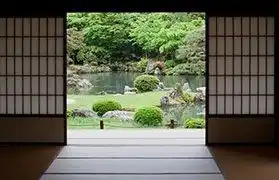Learn Japanese for free
Learn Japanese fast and easily with our language course ‘Japanese for beginners’.
![en]() English (UK)
»
English (UK)
»
![ja.png]() 日本語
日本語
| Learn Japanese - First words | ||
|---|---|---|
| Hi! | こんにちは ! | |
| Hello! | こんにちは ! | |
| How are you? | お元気 です か ? | |
| Good bye! | さようなら ! | |
| See you soon! | またね ! | |
What is the best way to learn the Japanese language?
Learning the Japanese language opens up a fascinating cultural and linguistic world. Immersion through Japanese media, including anime, movies, and music, helps learners understand nuances and improve listening skills. Starting with the basics, such as hiragana, katakana, and basic grammar, is essential. This foundational knowledge facilitates easier progression to more complex characters and sentence structures.
Practicing Japanese daily is crucial for retention and fluency. Allocating time each day for writing, speaking, and reading in Japanese enhances memory and comprehension over time. Utilizing online resources and language apps can make learning more interactive and flexible. These tools offer personalized lessons that cater to various learning styles and proficiency levels.
Finding a language exchange partner or joining Japanese-speaking groups provides real conversation practice. This interaction is invaluable for learning colloquial phrases and understanding cultural contexts. Incorporating Japanese into your daily routine aids in immersion. Changing device settings to Japanese, labeling household items in Japanese, and following Japanese social media accounts are simple yet effective strategies.
Reading Japanese literature and manga introduces learners to different writing styles and vocabulary. It also helps in understanding the use of language in various contexts and genres. Attending Japanese language classes or workshops offers a structured learning environment. These sessions provide direct feedback from instructors and opportunities to practice with peers, making the learning process more comprehensive and engaging.
Even Japanese beginners can learn Japanese efficiently with ‘50LANGUAGES’ through the practical sentences. First you will get to know the basic structures of the language. Sample dialogues help you to express yourself in the foreign language. Prior knowledge is not required.
Even advanced learners can repeat and consolidate what they have learned. You learn correct and frequently spoken sentences and you can use them immediately. You will be able to communicate in everyday situations. Use your lunch break or time in traffic to learn a few minutes of Japanese. You learn on the go as well as at home.
Learn for free...
Text book - book2 English - Japanese for beginners Learn Japanese - First words
Learn Japanese with the Android and iPhone app ‘50LANGUAGES’
The Android or iPhone app ‘Learn 50 languages’ is ideal for all those who want to learn offline. The app is available for Android phones and tablets as well as iPhones and iPads. The apps include all 100 free lessons from the 50LANGUAGES Japanese curriculum. All tests and games are included in the app. The MP3 audio files by 50LANGUAGES are a part of our Japanese language course. Download all audios for free as MP3 files!








